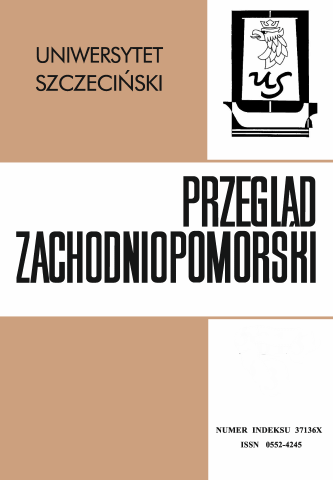Marian Hemar i jego satyra polityczna – List do pana prokuratora w Szczecinie – jako odpowiedź na zarzuty i proces Tadeusza Lipskiego
Marian Hemar and his political satire – ‘A Letter to the Prosecutor in Szczecin’ – as a response to the accusations and trial of Tadeusz Lipski
Author(s): Artur KażmierczakSubject(s): Cultural history
Published by: Wydawnictwo Naukowe Uniwersytetu Szczecińskiego
Keywords: intelligence in PRL; Polish literature; culture in PRL
Summary/Abstract: Marian Hemar was the author of many satires referring to political reality in the interwar period and after the 2nd World War. From 1953 he lived in Great Britain and worked for Radio Free Europe. The programmes broadcasted by the radio station, in which Hemar presented the current situation in Poland in a satirical and understandable manner, were extremely popular among Polish people both in Poland and abroad. One of his satires – A letter to Mr. Prosecutor in Szczecin, was devoted to the court proceedings of Tadeusz Lipski, a S wedish citizen of Polish origin, which took place in 1966 before the Provincial Court in Szczecin. Tadeusz Lipski illegally brought to Poland: 33 golden 20-dollar coins, a platinum ring and the amount of 7000 Swedish crowns. He was arrested and accused of smuggling as well as acting to the detriment of Poland through dissemination of books and magazines published in Polish in western countries among Polish citizens coming to Sweden. The court proceedings were among many political court proceeding conducted at that time in the People’s Republic of Poland. Nevertheless, their focus was an attack on Polish political immigrants, who were suspected of cooperation with the Federal Republic of Germany with a view to changing the eastern border and retrieving the Eastern Borderlands (Polish lands which were incorporated in the USSR ). Marian Hemar, in his satire, undermines and ridicules the charges presented to the defendant and to Polish organizations such as “Circle of people of Lviv” in Stockholm, which were suspected of aiming at a change of borders. He gives an answer to the charges and reveals the real prerequisites of the court proceedings. His political satires became a perfect historical source for researchers interested in the People’s Republic of Poland period.
Journal: Przegląd Zachodniopomorski
- Issue Year: 29/2014
- Issue No: 01
- Page Range: 23-51
- Page Count: 29

